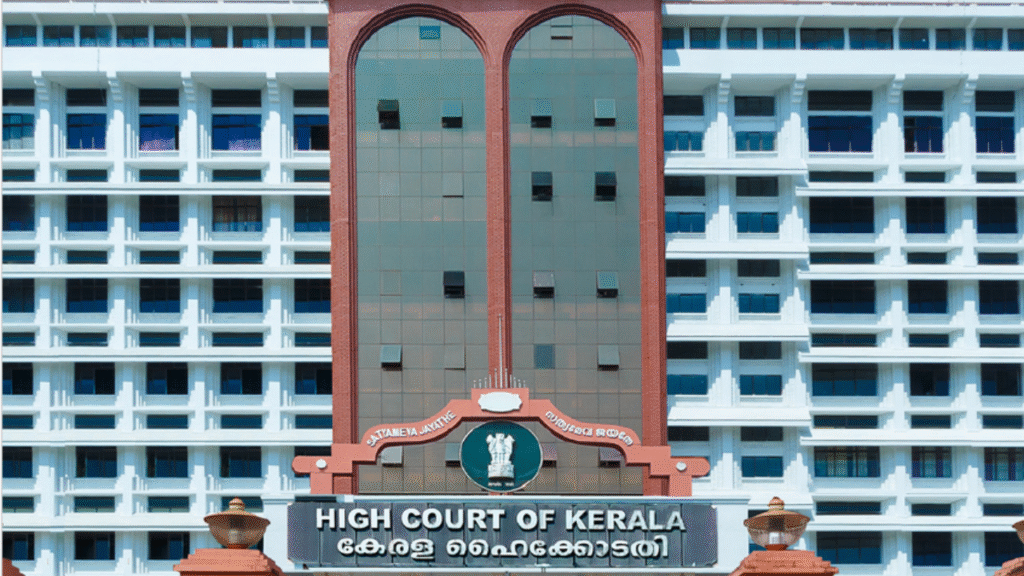TRANSFER OF REGISTRY RULES, 1966 (TR RULES) – TESTAMENTARY SUCCESSION (MUTATION)
2024 (11) KLR 235 : 2024 KER 84934 : 2024 (6) KLT 486 : 2024 (7) KHC SN 9
HIGH COURT OF KERALA AT ERNAKULAM
DR. JUSTICE KAUSER EDAPPAGATH
WP(C) Nos. 21759, 22548, 23763, 25731 & 38399/2024
Delivered on: 14th November 2024
Scope of Enquiry by Revenue Officers: This cluster of writ petitions addresses the scope and nature of enquiry to be undertaken by Revenue Officers under the Transfer of Registry Rules, 1966, for effecting transfer of revenue registry (mutation) due to testamentary succession.
Absence of Specific Provisions: The TR Rules do not contain a specific provision governing transfer of registry due to testamentary succession, leading to a lack of uniform standards across the State. While detailed procedures exist for inter-vivos transfers, civil court decrees/revenue sales, and intestate succession, testamentary succession is not explicitly covered.
Distinction from Intestate Succession: Although principles applicable to intestate succession (Rules 3(c), 14(2), 27, and Note (ii) of Rule 10), which mandate a summary enquiry and notice to legal heirs, may be applied, Revenue Officers under the TR Rules lack the jurisdiction to examine or adjudicate the genuineness or execution of a Will. Such adjudication falls within the exclusive realm of the Civil Court.
Proof of Will: A Will is a solemn document, and its execution must be established with trustworthy and unimpeachable evidence, as the testator cannot confirm it. The onus of proving a Will lies with the propounder, requiring strict adherence to Section 63 of the Indian Succession Act (signature, attestation by two or more witnesses) and Section 68 of the Indian Evidence Act (proof by at least one attesting witness). The general provision in Section 58 of the Indian Evidence Act that admitted facts need not be proved does not apply to Wills.
Role of Revenue Officers in Disputed Wills:
Mutation entries are primarily for fiscal purposes and do not create or extinguish title.
If the genuineness of a Will is disputed, especially by natural legal heirs, Revenue Officers must not effect mutation and should relegate the parties to the Civil Court to get their rights crystalized.
The pendency of a civil suit challenging a Will is a bar to mutation unless specifically restrained by court order. Decisions related to voluntary transfers (e.g., Nevin Raju, Sudan) do not apply to disputed Wills.
It is obligatory for Revenue Officers to issue notice to legal heirs when mutation is sought based on a Will.
Guidelines for Transfer of Registry due to Testamentary Succession: The Court formulated comprehensive guidelines for Revenue Officers:
Application Requirements: Applicant must produce a copy of the Will and a legal heirship/family membership certificate or an affidavit detailing legal heirs.
Notices: Issue notice to all legal heirs and known interested parties, inviting objections within 30 days. Also, publish notice on official notice boards (Village, Panchayat, Taluk Offices, etc.) within 30 days.
Uncontested Cases: If no objection is raised by legal heirs, or if all legal heirs consent, the transfer can be allowed as an uncontested case.
Disputed Cases (Legal Heirs): If any legal heir disputes the Will and objects to mutation, the Revenue Officer must relegate the parties to the Civil Court.
Disputed Cases (Other Interested Persons): If other interested parties object, the Revenue Officer shall conduct a summary enquiry into the merits of the objection. If the objection warrants consideration, the parties should be referred to the Civil Court.
Civil Suit Requirement: Objectors (legal heirs or other interested parties) shall be directed to file a declaration within three months that they have instituted a civil suit challenging the Will, along with a copy of the plaint.
Consequence of Non-filing: If no declaration or suit document is produced within three months, the mutation can be allowed as an uncontested case.
Waiting for Suit Outcome: If a declaration and proof of suit institution are filed, or if a civil suit regarding the Will/property succession is already pending, the Revenue Officer shall await the result of the suit before taking further action.
Case-Specific Directions: The Court applied these guidelines to the specific writ petitions, affirming the deferral of mutation until civil disputes are resolved where Wills were contested (WP(C) 21759/2024, WP(C) 23763/2024, WP(C) 38399/2024). For WP(C) 25731/2024, the petitioners were directed to provide legal heir details for proper notice issuance. In WP(C) 22548/2024, involving a joint Will by Muslim testators, the Court noted the limitations of Muslim Personal Law on testamentary power (e.g., requiring consent of other heirs for bequests to an heir beyond one-third of the estate) and held that mutation of the entire property could not be allowed due to a legal heir’s dispute.
Recommendations: The Registry is directed to forward the judgment to the Chief Secretary and Principal Secretary (Revenue) to ensure these guidelines are followed by all Revenue Officers. The State Government is encouraged to consider amending the Transfer of Registry Rules, 1966, to incorporate specific provisions for testamentary succession based on these directions.

